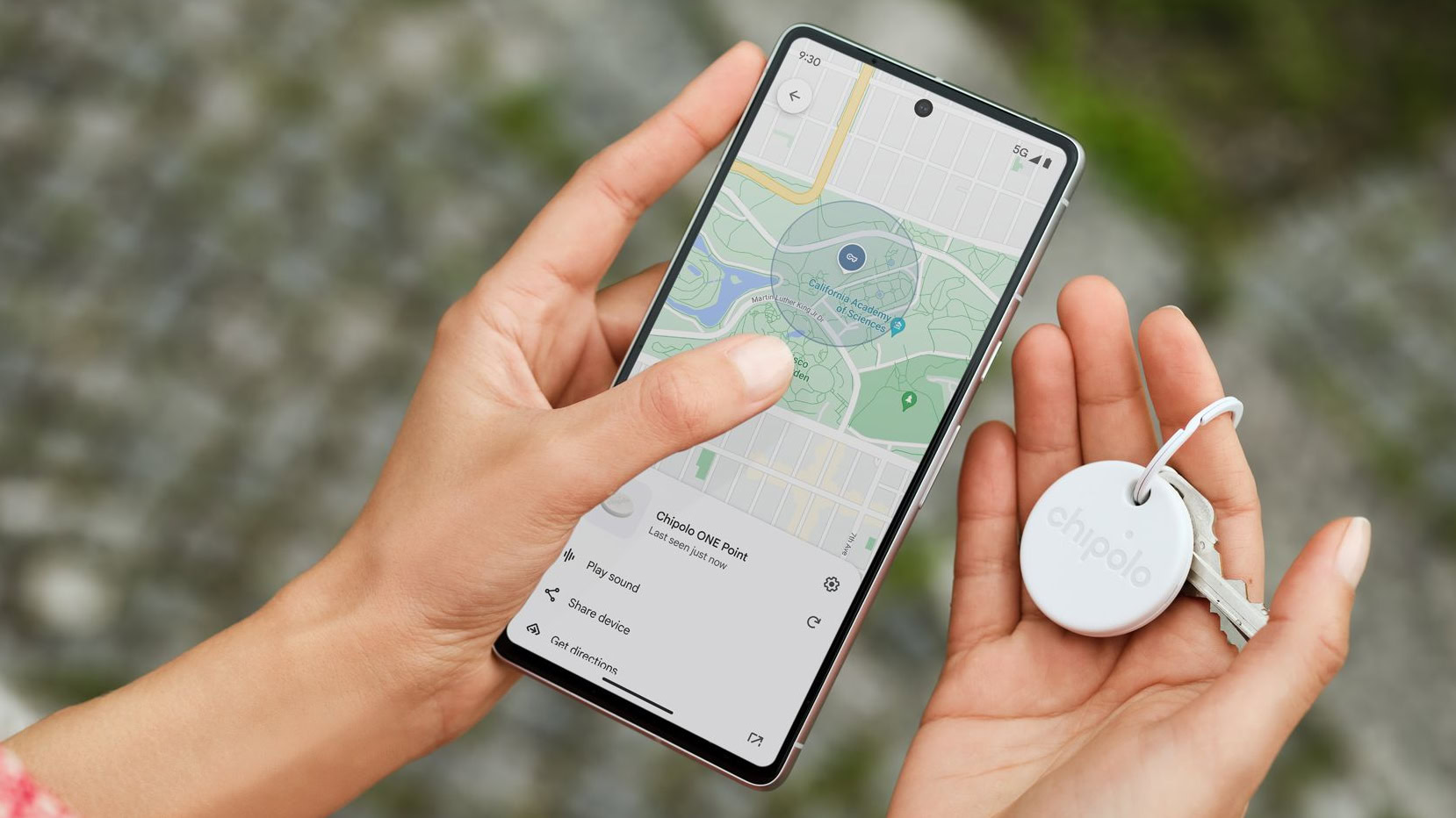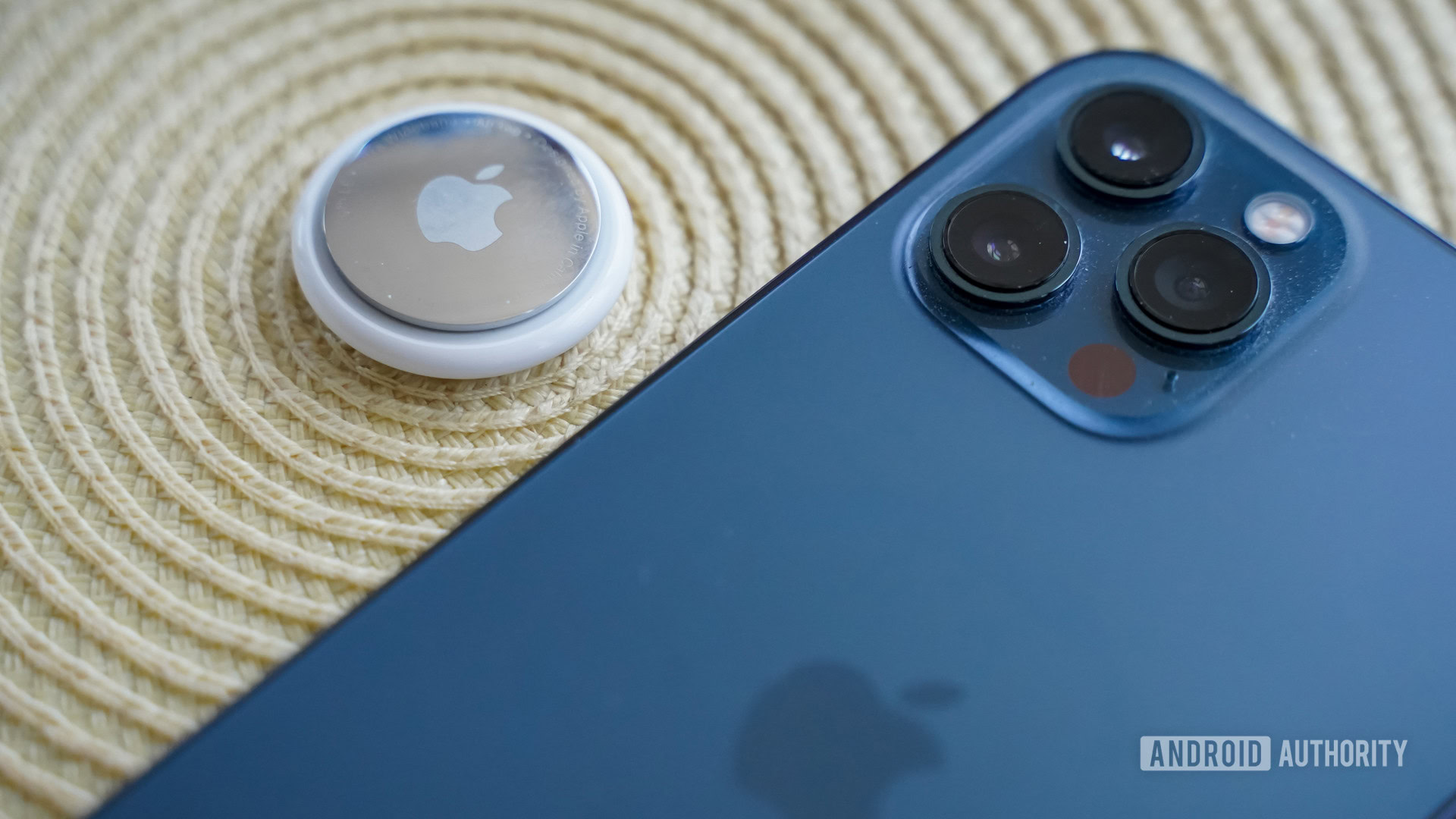We’ve been hearing about Google’s official AirTag competitor for years now, but it was only during Google I/O that the company officially announced its upcoming Find My Device network, which would turn the billions of Android phones in circulation into a network that would help you find and locate your missing phone, accessory, or anything you’ve attached a compatible Bluetooth tracker to.
Chipolo is one of the first companies that jumped on board and announced two trackers for Google’s ecosystem, ONE Point and CARD Point. But the trackers didn’t ship in July as initially expected, with Google delaying the launch “until Apple has implemented protections for iOS,” meaning until iOS adds support for unknown tracker alerts for Google-compatible trackers. Android phones, on the other hand, have already implemented unknown tracker alerts for Apple’s Find My network.
We sat down with Chipolo’s CEO, Primož Zelenšek, and its CTO Domen Barovič, to talk about Bluetooth trackers in general and Google’s Find My Device network in particular. We discussed the delay — and Chipolo hinted that things might be moving in the right direction at the end of this month — as well as Google’s and Apple’s network strengths, differences, and why you might still want a regular Bluetooth tracker that doesn’t belong to any ecosystem.
You can watch the video above or read the transcript below to get the juicy details.
Chipolo interview: Bluetooth trackers and insights into Google’s Find My Device network
Luke Pollack / Android Authority
Q: Can you start by introducing yourself and tell us a bit more about Chipolo as a company and what you’re doing?
Primož Zelenšek: I’m Primož, CEO and co-founder of Chipolo.
Domen Barovič: And I’m Domen Barovič, one of the co-founders. I’ve been doing this for 10 years now. I’m the CTO taking care of the design product part. We have our 10th anniversary this year, so we’ve been along for quite a long time, providing Bluetooth-finding solutions for everyone. We’re proud that we are where we are and it’s been a pleasure all these 10 years. We actually started by helping out a friend, that’s how it all started. It was just an idea that just came to life and we found out numerous people around the world need it. We’re really happy to be helping them out.
Q: Can you tell us more about the ONE Point and CARD Point for Google’s Find My Device network? How easy was it to implement and how long did the development take?
Primož Zelenšek: We started with Bluetooth trackers 10 years ago. We built our own app and ecosystem, and then nothing dramatically changed in the category until Apple announced its ecosystem and service. And now Google did a similar thing this May. Unfortunately, we cannot share many details about implementing the Find My Device ecosystem because of NDAs. We can say it was a pleasure working with Google on this matter, similar to Apple. It took relatively long, more than two years I would say. The service was being developed through this time and finally was announced during Google I/O.
It took more than two years to develop the Chipolo trackers for Google’s Find My Device network.
Q: What are the differences between the trackers and what do you recommend people use them for?
Primož Zelenšek: The two new trackers are basically similar to the Spot line of trackers we already have in our portfolio, but the main difference is they’ll be working inside the Google ecosystem. If we compare Google’s ecosystem and the in-house Chipolo one, the main difference is that there will be a huge community search behind it. Other users will update the location of those misplaced or lost items. This is the bigger difference between existing Bluetooth trackers for Android and the new trackers coming on the market.

Q: The two Google-compatible trackers were announced in May and were supposed to ship in mid-July, but they didn’t. Can you talk about this delay? And is there any other expected release date at this point or not?
Domen Barovič: It’s a bummer that things got delayed. We’re sure our customers are not very satisfied with that and, to be honest, we are not satisfied as well. I cannot talk for other companies, but I can assume that all the parties involved in this are not super happy about it. But we totally understand that when it comes to big changes in networks and technologies, delays do happen. We are helping as much as we can all the parties involved to make this as fast as possible. So yeah, we’re not super happy about the delay, but we understand that privacy and security in such a standard that will probably be here for a long time needs to be well thought out and through. That’s just the way it is. If you’re reading Github or similar sites, you probably noticed that an update is coming in September so we have to wait until the end of the month and we’ll definitely see something new.
From the eyes of the consumer, there are practically close to zero differences between Google’s and Apple’s networks.
Q: What do you think are the strengths of Google’s and Apple’s networks and the differences between them? Do you see any differences in privacy, security, or usability between the two?
Domen Barovič: The technical specifications are not public, so we cannot go into those details. As Chipolo, we’ve always put our users first, so we look at everything from the eyes of the consumer first. So from the eyes of the consumer, I can say that there are practically close to zero differences between the two networks. Of course in technical terms, there are certain differences, but looking at the consumer perspective, it’s just a very cool way of knowing where your stuff is and the location is updated very frequently. So everything is very similar. There are different protocols, of course, because they’re two different companies, but either way, the end result is 90% the same.

Eric Zeman / Android Authority
Q: Are you helping Google and Apple improve their standards based on your experience with regular Bluetooth trackers?
Domen Barovič: We are lucky enough to be working with both major players here. Of course, we are sending in feedback all the time, we are an advisor in a way here. There’s also the Internet IFTA (Editor’s note: Domen meant to say IETF), a task force and standardization organization that helped build HTTP and we are a part of that as well alongside Google, Apple, and other parties. And we are proud and glad that we can contribute to developing the standard for this tracking, and especially helping the security issues in terms of unwanted tracking protection.
Q: Where do you see your own Chipolo trackers in the future? Do they offer something that’s missing from Apple and Google, and can standalone Bluetooth trackers coexist with those bigger ecosystems?
Primož Zelenšek: Chipolo is trying to deliver the best product for the consumer. And that means that we are willing to have the ecosystem as clean and as simple as possible. Therefore our idea is to have a simple product line where both ecosystems would be in the same product. Of course, it will not happen that they will be working in parallel. But at least you will not need to have three different products like we currently have. That will definitely be what we are seeing in the long term.
Luke Pollack / Android Authority
Q: What are the biggest advantages of getting a standalone Bluetooth tracker? Did you implement any features that aren’t there yet with Apple’s or Google’s setups?
Primož Zelenšek: Our regular portfolio which has been on the market from the beginning has constantly improved. It’s taking care of 95% of usage. With that portfolio, you can share between platforms, so if inside one family there are iOS users and Android users, they can very easily share one key between them. You can find your phone by pressing a Chipolo — double press the Chipolo and the phone starts ringing. What we’re seeing based on statistics in 99% and even more cases, people are misplacing their items around the environment where they are every day. This means that the regular portfolio works perfectly and you can very easily find it. Of course, with Apple and Google, the biggest advantage is that you are also getting a network that updates the location.
Regular Bluetooth trackers are compatible with both platforms and work more like reminders than trackers.
Domen Barovič: For our regular line, without the huge networks, what we know is it’s more or less used in the house. Like children’s toys and other stuff inside the house. What we have also seen is that there are certain people who do not want to be a part of the network since they have a feeling that they are being somehow monitored. And those people actually prefer just to keep everything local. So they’re just saying, “Hey I just want to know. For me, it’s okay. If I just get a reminder, when I leave it behind, that covers 99% of my use, and I’d rather have that than be a part of a network. So yeah, that’s one of the reasons that normal Bluetooth trackers will still exist. And I just have to add that in our core line, we’ve been working very hard on our out-of-range notifications. We also have it patented. Our out-of-range notifications are more advanced. We’ve worked really hard to notify the user when something is left behind without false alerts. We call our core line “Reminders,” so they’re not trackers, but reminders more or less.
Q: Google is rolling out cross-platform unknown tracker alerts, and Apple will roll those out as well. Do you think this solves most of the security and privacy problems with Bluetooth trackers, or are there still issues and problems that will need to be solved in the future?
Primož Zelenšek: I think what they are doing is definitely the right way and we believe that it will solve the majority of unwanted situations. Honestly speaking, before this category, GPS trackers based on cellular data already existed, so if you wanted to track somebody, you could also do that with other, more precise technology. But when the big players joined this game, that became a potential issue. I think that Apple and Google are trying to build a really great system to prevent such a thing and they’re investing a lot of their energy on that and bringing the best service for the end consumer and trying to keep them secure and safe.
You can watch the full Fitbit interview above or on the Authority Media YouTube channel.


